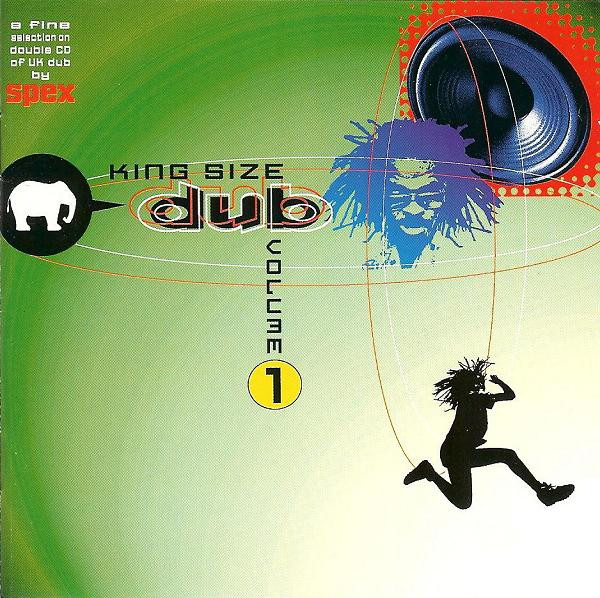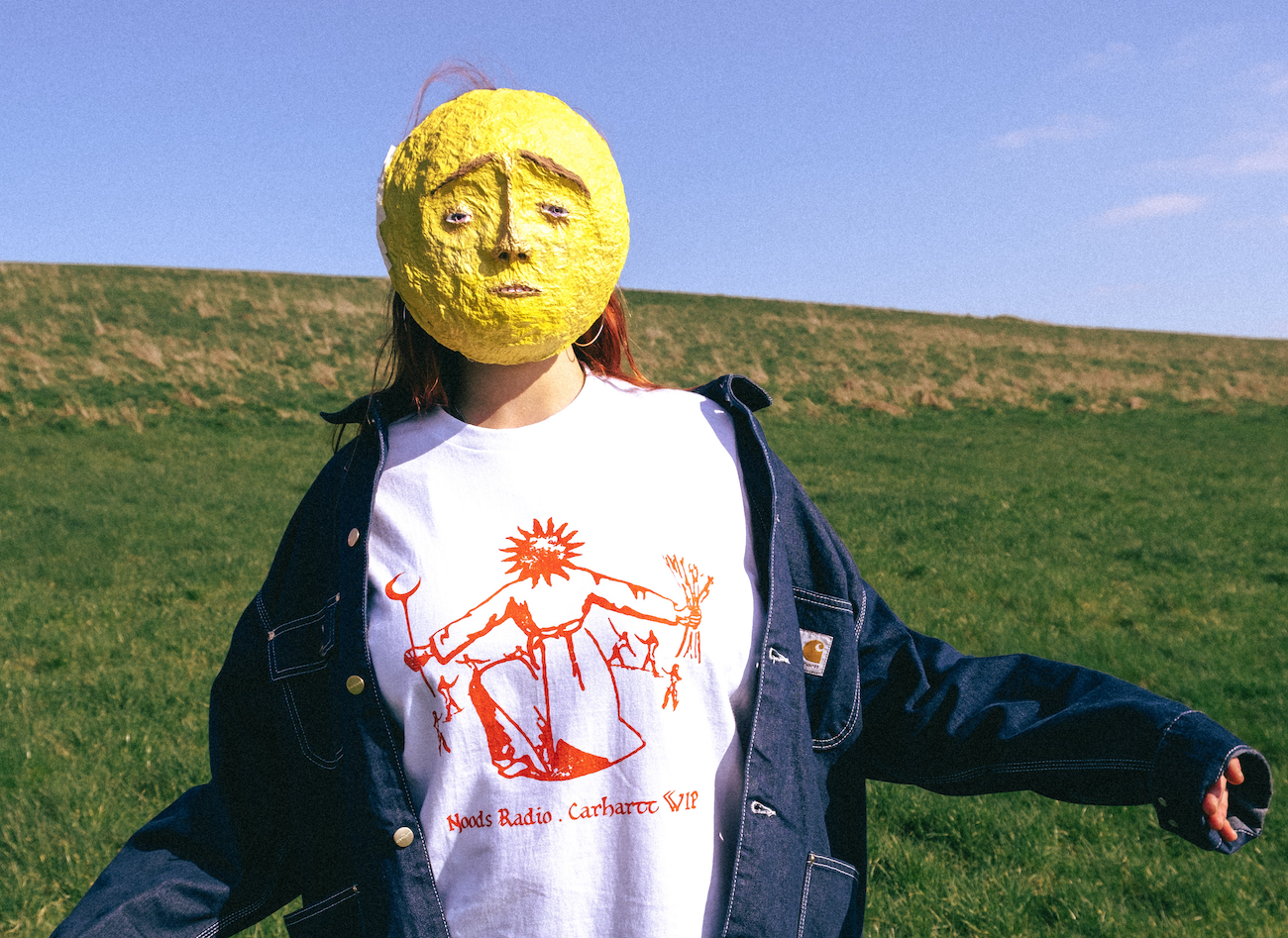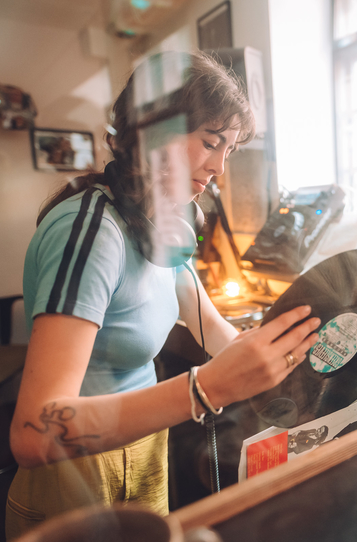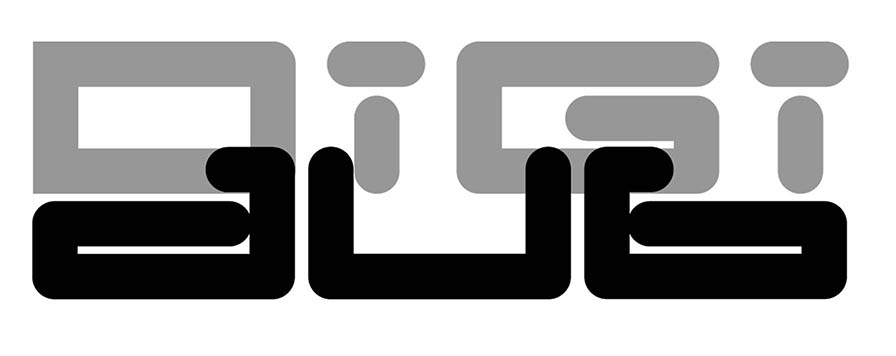
Digi Dub: A Step Towards Dubstep
Since 1992 Lee Berwick’s Digi Dub label has been operating at the interstice between experimental music, dub and dance music. Spice Route takes some time to consider the labels importance not only as a harbinger of dubstep but also as key node on the complex map that charts the evolution of UK dance music.
For those of us who keep track of the fickle and fast moving micro trends that flow through the “digger” scene the Digi Dub label had a brief moment in the spotlight a few years ago. Records from the back catalogue of the South London experimental dub and dance label, dormant for many years, started appearing on tastemaker webshops and revered selector setlists which lead inexorably to the precipitous price rises; whereby modestly priced releases suddenly shot up in value over a matter of weeks fuelled by the clamour of sweaty laptop diggers hungry for the next new thing.
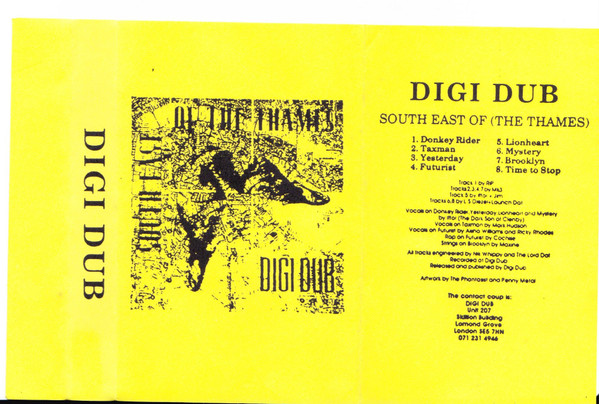
"Digi Dub represents an important and highly overlooked node in the complex infrastructure of UK dance music history. Moreover, the history of Digi Dub bucks against the prevailing cultural narrative of electronic music"
In the case of Digi Dub though the hype and the prices were entirely justified. Digi Dub represents an important and highly overlooked node in the complex infrastructure of UK dance music history. Moreover, the history of Digi Dub bucks against the prevailing cultural narrative of electronic music; the facts of it’s existence resist being subsumed by the hardcore continuum, the totalising theory of the evolution of dance music espoused by Simon Reynolds, and instead posits an alternative history. Digi Dub shows an instance where the worlds of sound art experimentalism, free party politics and dubwise methodology fused to create ground breaking electronic music that simultaneously linked with pioneering work that had preceded it and foreshadowed later developments, indeed to borrow Berwick’s self description of the label’s oeuvre Digi Dub provided Dubstep before it was invented.
Perhaps emboldened by it’s new found cultural cachet or maybe coincidental the label has been restarted by label owner Lee Berwick and mercifully the scarcely available physical back catalogue has now been supplemented by digital versions available on a newly minted Digi Dub bandcamp. A flood of new and archived projects have also been released on the label running the gamut from deep soundsystem meditations through to quirky electronica. With new material amassing at pace it seems like an opportune moment to go in to the back catalogue for an appraisal to find some key releases that mark out the trajectory of a label now in it’s 30th year of existence. First however a potted history of the label owner is required.
London-born Lee Berwick worked as a technician in the 1980s. His musical diet within this time oscillated between two poles of a musical spectrum. At one end stood pure noise and theatre which was provided by attendance at Industrial gigs such as the infamous ‘Concerto for Voice and Machinery’ wherein members of Einstürzende Neubauten joined fellow noiseniks Genesis P-Orridge of Throbbing Gristle and Frank ‘Fad Gadget’ Tovey to deliver a 30 minute cacophony of invasive sonics; an aural assault of drilling and destruction that saw a sizeable hole drilled in to the concrete floor of the ICA and a post-performance riot from a hostile crowd. At the other end of the spectrum Berwick became a regular attendee at Jah Shaka dub meetings where sonic power was expressed through commune with the depth of Shaka’s formidable speaker bins playing cavernous reggae basslines to rattle the bones of a devout crowd of dub disciples. Such exposure lead to Berwick becoming “attuned to the highly experimental, physiological, and spatial qualities of dub” which would later inform his label exploits.
Such musical exposures then morphed from observation in to active participation as Berwick obtained his own studio in 1989 which in the subsequent year was replaced with an upgraded facility that played host to a coterie of artists who would have ongoing label involvement including DJ Ornie Birch, Iffor, Styward, LS Diezel, Mark III and The Lord DAT. Digidub (note the absence of space between the words delineating live act from label) quickly grew into a live act, playing out on the emerging London squat scene with The LS Diezel Sound System.
"Mk3’s “Futurist”, for example, sounds like the kind of track Augutus Pablo might have made if he’d dropped a disco biscuit at Castle Morton and rolled straight in to the recording studio"
The studio bore it’s first fruit in the form of the label’s first 12" release “Skunk / Poor Man’s Glory” co-produced by the mysterious LS Diezel and label owner Berwick under his short lived nom de disque Launch DAT. “Skunk” pitched a deep cavernous dub bassline against a paranoid bricolage of samples all riding roughshod over a narcotised midtempo breakbeat. “Poor Man’s Glory” is more spritely with ragga mc samples merging with a delightfully fluid yet weighty dub bass and nimble breakbeat which made it a weapon of choice for many breakbeat hardcore DJs wanting a bit of variation in their sets.
Two years later and the label released its first LP. Carrying eight tracks “South East of the Thames” serves as keystone release that connects the pioneering work of UK dub mechanics like Adrian Sherwood and Mad Professor in the 80s to the latter day dubwise deviations of labels like Bokeh Versions. Whilst many of the tracks retain some of the rhythmic architecture of breakbeat hardcore the overall sonic character of all of the tracks sways fulsomely towards Jamaican dub recordings. Mk3’s “Futurist”, for example, sounds like the kind of track Augutus Pablo might have made if he’d dropped a disco biscuit at Castle Morton and rolled straight in to the recording studio; winsome digital flutes merge with an almost bleep sounding rhythmic undercarriage punctuated by the characteristic offbeat skank of reggae and topped with a yearning female vocal from Aisha Williams.
Elsewhere the amusing yet seductive groove of “Donkey Rider” by R.I.P. pits an awesome skanking rhythm punctuated by occasional outbursts of acidic squelch against an imperious vocal delivery from Iffor (The Dark Son of Clenby) describing an asinine tale. LS Diezel and Launch DAT team up again and deliver the album highlight in “Mystery” with a magisterial midtempo dubby breakbeat rhythm topped with a delightful mesh of eastern flutes, melodica and clattering dub effects.
Author, journalist and Noods host Matt Anniss’s book “Join The Future” has done much to disrupt the supremacy of Reynold’s Hardcore Continuum. Anniss’s book proved pivotal in widening the scope of UK dance music history by positing Bleep and Bass as an alternative history that skews the geographical and racial focus of the continuum by taking it in to the North of England and in to the hands of black musicians. “South East of the River Thames” is a crucial document that adds further mud to the waters of Reynold’s reductive history as the album exists as a crucible for the kind of experimental electronic dub that did not follow the hardcore to jungle to garage trajectory prescribed within the continuum. Instead it showed that collisions between Jamaican music and Acid House could result in distinctive enclaves of creative output that existed according to the rules of their own creators and not easily swept up in fast moving tides of fashion.
As tempos began to speed towards proto-Jungle tempos in lots of contemporaneous music the Digi Dub studio stuck to their own agenda and 1994’s Purple Boy by Smart Alec & Clever Cloggs illustrates the steeliness of their resolve. An ode to the joys of drinking Tenants lager in the park the track is built around a lurching breakbeat with a slightly absurd semi-spoken vocal spliced together with all manner of off-kilter samples and broken fairground melodies. Proving to be truly representative of the pissed up in a park mind-state the music, and accompanying video, perfectly encapsulate the idiosyncratic approach of the Digi Dub label by now in it’s third year of existence.
In the two years that followed the label released a couple of singles the pick of which came in the form of a split 12" from Lee Berwick under his Mudskipper alias and his DigiDub band mate Styward. Berwick’s kinetic “Bankman” is propelled by a skittering breakbeat, hyperdrive skanks and a thickset rubbery sub bassline that would do some serious damage to your underpants on a high powered rig. Styward’s “Dub Cowboys” is a minimal chugging dubwise workout built around a simple repeating dancehall style sub bass riff and stacks of phase shifting percussion gradually shifting in and out of the mix whilst snare hits rasp and scatter amidst barrages of spring reverb treatment.
In 1996 came a compilation that celebrated the five year birthday of Digi Dub which collected together most of the back catalogue and combined it with some previously unreleased music from the likes of Mark Hutson’s Mashed project and the mysterious one-off project entitled Charles Harrison & Son. What’s notable is that more than 50% of the material on the compilation is produced or co-produced by Berwick himself under a host of pseudonyms and collaborative projects with other label members. Testament to the collective ethos of the label fostered by their active participation in the Camberwell squatting scene earlier in the decade. Whilst all of a high calibre the highlight of the comp is the rootsy deep house stepper “Radio Babylon” from Smart Alec & Clever Cloggs. With ragga chat non-sequiturs drifting over a glorious melange of radio beeps, melodica, batty bouncing bass and a forthright house groove the track is the perfect encapsulation of the freeform approach to sound mashing that the label had become so adept at producing.
"(Veal) found in the raw drum and bass reductionism of dub, a synergy with musique concrete’s emphasis on repetitive rhythmic structures and in dub’s electronic manipulation of spatiality further crossover especially with installation works from the likes of Stockhausen"
In the two years that followed there was a further 12" from Hutson’s Mashed project entitled Conquering Lion and another 12" from Smart Alec and Clever Cloggs with a bolshy speed garage rerub of Pupl-ized from All Seeing I heading up the four track release. Dodo’s “Cool Lava” EP stands out from this period as a particular compelling release. Quite apart from the bulk of the label’s other material the four tracker from London based instrumentalist and theremin enthusiast Dodo Kitching is free from any ostensible dub references and instead offers four charming electronic oddities formed from vintage rhythm box loops, space age bleeps and glorious arcs of rich synth melody.
1998 proved to be the final year of output before a hiatus of nearly 20 years, aside from a CD release from Digidub in 2000 entitled “Scrap Bodies” which collected together some of Berwick’s junk music experiments. By now Berwick’s focus appeared to be heading away from releasing music and more towards focusing on sound installations, performance and film.
In his book Dub: Soundscapes and Shattered Songs in Jamaican Reggae Michael Veal makes the hitherto unmade link between Jamaican dub production practices and those of avant-garde tape musicians. Veal founds parallels between dub music of 70s Jamaica and the tape-based compositions from Europe in the 50s and beyond. He found in the raw drum and bass reductionism of dub, a synergy with musique concrete’s emphasis on repetitive rhythmic structures and in dub’s electronic manipulation of spatiality further crossover especially with installation works from the likes of Stockhausen. An artist such as Berwick who has had feet in both camps is testament to Veal’s point about the mutual exchange between the disciplines and perhaps goes some way to explaining Berwick’s outlier status in dance music history.
Emerging from hiatus in 2020 Digi Dub’s appearance on Bandcamp has lead to a huge swathe of back catalogue and archived projects popping up for downloadable and affordable consumption. Recently newer material has surfaced including singles from London based reggae artists Jah Mirikle and Ezy Star.
"Sherwood and Professor took the tools and techniques of the Jamaican dub progenitors and provided refreshed iterations of the dubwise production ethos."
What’s compelling to these ears though is how fresh sounding a lot of the old back catalogue still sounds. Digi Dub’s purple patch of creativity in the early to mid 90s resulted in a truly unique archive of music being put together that forms an important connecting point between the work of UK dub pioneers Adrian Sherwood and Mad Professor to the early dubstep released on labels like Tempa and DMZ and onwards to the experimental endeavours of labels like Bokeh Versions and Jahtari.
Sherwood and Professor took the tools and techniques of the Jamaican dub progenitors and provided refreshed iterations of the dubwise production ethos. Sherwood broadened the scope of what could pass as reggae with an expanded pallet of sounds and ingenious production flourishes, check the crazed reversed delays on the drums on the first Creation Rebel record for proof! Likewise Mad Professor broke new ground within reggae by honing a thoroughly modern and technocratic approach to dub reggae, his use and abuse of the eventide harmoniser on drum tracks is now his signature flourish.
Taking this as groundwork Berwick and his label mates managed to subvert dub strategies to an even greater extent by applying the production methods of dub to the nascent sounds of breakbeat hardcore. Balancing raw and bass heavy rhythms against irreverent lyrics and samples, strange tonal landscapes overlaid with hard steppers beats, these are all things that would be given form later when Dubstep came in to being. But Digi Dub broke the ground first and that should be applauded. Dubstep before it was invented, I concur.
